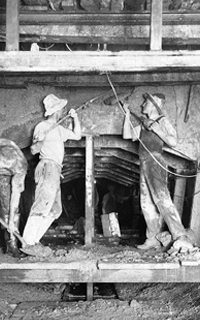Log in

You may want to know more about how our new prices will affect your water bill.

It's time for a once-in-a-generation restoration for the Northern Suburbs Ocean Outfall Sewer.
Article quick links
Questions about our price increase?
You may want to know more about price increases for water, wastewater, stormwater and other services from 1 October 2025 on your bill.
Our prices for 2025–30 have only just come into effect. Price increases will support our water infrastructure and ensure we can meet the demands of a growing population, support future housing, and keep on delivering the reliable and high-quality water services you expect from us.
No two bills are the same. Total charges depend on your individual water usage, the type of property and how many meters you have. You can use IPART's bill calculator to estimate what your new charges may be.
See if we answer your questions in our price increase FAQs.
100 years young and still serving Sydney
It's time for a once-in-a-generation restoration for the Northern Suburbs Ocean Outfall Sewer.
Every time you empty a sink, have a shower or flush the loo, you could be sending wastewater to the Northern Suburbs Ocean Outfall Sewer (NSOOS). It's a century-old piece of Sydney's heritage, deep underground. We're preserving it for generations to come.
The NSOOS is an irreplaceable wastewater system. It plays a big role in quietly protecting public health and the environment.
Infrastructure you never see
For 28 kilometres, the NSOOS tunnel winds from Blacktown to Manly. In some places, it's 90 metres below street level.
It carries more than 330 megalitres of wastewater a day for around 1.36 million people, all the way to our North Head Water Resource Recovery Facility. Picture enough wastewater to fill 140 Olympic-size swimming pools.
The North Head facility treats the wastewater before it's released 3.8 kilometres offshore.
The major restoration work we're doing will add another 50 years to the NSOOS's long lifespan.
Construction workers in the NSOOS in the late 1920s.
Environmental challenges? Covered.
We plan to be ready for whatever challenges the environment sends our way.
Starting with the new Upper South Creek Advanced Water Recycling Centre. When complete in 2026, it will be one of the most advanced wastewater recycling facilities in the Southern Hemisphere. The facility will be able to generate half the power it needs from its own 4-megawatt solar farm.
It won't be long now before we're delivering more high-quality recycled water to support a climate-resilient Western Sydney.
What advanced water recycling means for you
Our water quality monitoring program confirmed that Greater Sydney's drinking water remains high quality and safe from July to September 2025, meeting the high standards set by the Australian Drinking Water Guidelines.
Find the detailed quarterly water quality report for your area at Water analysis under 'Water quality report'.
-

Filtered
We filter your water by removing debris, adjusting pH, binding fine particles into flocs, passing it through sand and coal filters.
-

Treated
We use various methods to improve water quality, including disinfection, pH adjustment, and the use of chemicals to remove or inactivate contaminants.
-

Tested
We keep a close eye on every drop, testing it at every step to make sure it meets the strict Australian Drinking Water Guidelines, ensuring it is clean and safe for you to drink.
Jila's corner
Take Jila's quiz. Are you smarter than a 5th grader?
"Hi, I'm Jila! Imagine it: all the water in the world has gone up and down and round and round for billions of years. It's the same water the dinosaurs drank."
- Question 1
- Question 2
- Question 3
- Question 4
Is there ever 'new' water on Earth?
What percentage of the water on the planet is salt water?
What do you think 'desalinated' water is?
Where do you think tap water comes from?

Need help paying your water bill?
We offer extra time to pay, payment plans, ongoing support and even referrals to community services.
Support options
- Payment extensions and plans
- Support if there's violence at home
- Deductions from Centrelink payments
- Discounts for pensioners
- Emergency support.
Use our easy payment assistance finder and get matched to the help you need right now. Learn more.
Innovation comes for coffee cups
Aussies go through a billion disposable coffee cups every year. Now, hi-tech innovation gives them new life.
We trialled a new sustainable asphalt containing recycled coffee cups to complete a section of road at our Upper South Creek Advanced Water Recycling Centre.
Almost 15,000 trucks rolled across the road during the trial. It turns out asphalt with recycled coffee cups can outperform regular bitumen and reduce the carbon footprint of road construction by around 15%.
Find out more about environmental protection.



